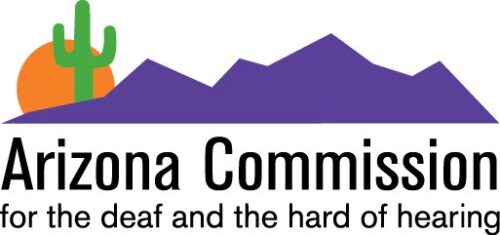Arizona Legislature Approves Budget for First in Nation Assistive Technology for House, Senate
(PHOENIX – May 13, 2016) – The Arizona State Legislature has approved a budget request from the Arizona Commission for the Deaf and the Hard of Hearing (ACDHH) to provide the necessary funding to upgrade the assistive listening technology throughout the Arizona State House and Senate chambers. Commonly referred to as “looping,” a hearing loop is a special type of sound system for use by people with hearing aids and cochlear implants.
According to Sherri Collins, executive director of ACDHH, this technology has long been needed to ensure Arizonans with a hearing loss will have access to the state’s legislative process.
“The House and Senate are accessible for individuals with physical disabilities as mandated by the Americans with Disabilities Act. Interpreters are available for members of the Deaf community who are fluent in American Sign Language. But those with a hearing loss have not had effective assistive technology available to them in the chambers,” said Collins. “Until now.”
Collins added,” We believe the Arizona Legislature is the first in the nation to completely loop the public hearing rooms and galleries.”
The Legislative Council, a government agency with authority for both the House and Senate, received an appropriation for $250,000 and will oversee the installation. The funds come from fees collected through an already existing landline telephone tax.
According to Sen. Andy Biggs (R-Gilbert), President of the Senate, this upgrade to the Senate chambers will now enable those with hearing loss to fully participate and engage with their elected officials.
“The political process should be open and accessible to everyone. With the addition of the looping technology, the Senate is now more accessible to the hearing loss community that needs it,” said Biggs.
An induction loop system consists of one or more loops of wire driven by an amplifier connected to the sound system. The hearing loop transmits the sound from the PA system in the form of ripples in the magnetic field directly to hearing aids and cochlear implants set to the “T” or telecoil setting. A telecoil, a small copper coil found in most hearing aids and all cochlear implants, picks up magnetic waves from the loop and converts it into electrical energy. This is similar to how a microphone converts sound waves in to electrical energy. By switching the hearing aid to the “T” position, the electromagnetic field is detected and sound from the PA system is heard in the user’s ear clearly without background sound.
“Arizona’s legislature passed a bill in 2007 that supported increased hearing aid functionality,” said Rep. David Gowan (R-Sierra Vista), Speaker of the House. “The bill requires hearing care professionals to inform their patients about telecoils when purchasing hearing aids. And now thanks to the installation of the looping technology, these individuals will have full access to the House.”
The date for the installation has not been set yet, but Collins expects the process to begin this summer, with completion well in advance of the start of the next session.
“We have worked these past months to secure the funding needed for this important technology upgrade to the House and Senate. President Biggs and Speaker Gowan are to be commended for their response. We are pleased that the Legislative leadership saw fit to set aside the money to ensure that the hard of hearing community has access to a hearing loop system that is now so common in many public settings, ” said Sue Kay Kneifel, chair of the board of commissioners of ACDHH.
About ACDHH
ACDHH serves as a statewide information referral center for issues related to people with hearing loss and aspires to be a national leader in communication access, support services and community empowerment throughout the state. The purpose of the organization, and its commissioners, is to ensure, in partnership with the public and private sector, accessibility for the deaf and hard of hearing to improve their quality of life. For more information about ACDHH, please visit www.acdhh.org.


